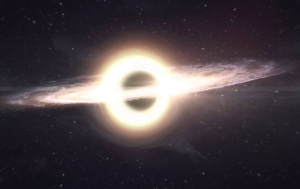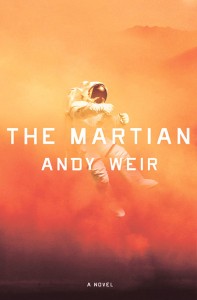 I keep flashing on what a colleague said to me as we exited a critics’ screening of “The Martian.” “Good movie,” he said. “But too much science.” I couldn’t help laughing. His comment reminded me of my favorite scene from “Amadeus” (1984), in which the Holy Roman Emperor Joseph II dismisses a new work by composer Wolfgang Amadeus Mozart by saying, “There are simply too many notes.”
I keep flashing on what a colleague said to me as we exited a critics’ screening of “The Martian.” “Good movie,” he said. “But too much science.” I couldn’t help laughing. His comment reminded me of my favorite scene from “Amadeus” (1984), in which the Holy Roman Emperor Joseph II dismisses a new work by composer Wolfgang Amadeus Mozart by saying, “There are simply too many notes.”
To be clear, I’m not suggesting director Ridley Scott is on the level of Mozart. (Sometimes he’s not even on the level of Salieri; hi, “Prometheus.”) But I do think that you can never have “too much science” in a movie, at least when the science is accurate and well-executed. Matter-of-factly miraculous, science is like cinema at its best.
Movies may be one of our most beloved forms of legal escapism, but they also better acquaint us with our world – our universe, really. From their very beginnings, they have capitalized on our capacity for wonder and empathy to introduce us to reality at a scale and scope that was previously difficult to conceive.  As we have sat in theater seats (and, now, our living rooms), we have borne witness to other cultures, other lands, and, as the mid-twentieth century rolled in, other planets. And because our sense of wonder is contingent on the sliver of possibility that what’s on screen could really take place, we have required realism along with our fantasy.
As we have sat in theater seats (and, now, our living rooms), we have borne witness to other cultures, other lands, and, as the mid-twentieth century rolled in, other planets. And because our sense of wonder is contingent on the sliver of possibility that what’s on screen could really take place, we have required realism along with our fantasy.
Enter the “real science” of our favorite science fiction films. Like last year’s “Interstellar,” “The Martian” has received high marks from reigning scientists. Neil deGrasse Tyson gave it his seal of approval. (The filmmakers “got crucial science right, while enhancing the story by fictionalizing the science that remained,” he tweeted.) Along with the Jet Propulsion Laboratory, NASA worked so closely with Scott’s team that the director says he learned about water on Mars months before the rest of us. Even hard-core science folks who quibbled with certain details gave the film an overall thumbs-up.
It makes sense, since science is the real hero of “The Martian.” Consider the premise. It’s a big-budget, man-versus-nature epic about an astronaut/botanist stranded on Mars who has to “science the shit” out of his situation in order to survive, and it’s based on a novel by programmer Andy Weir, who actually built his own computer simulation of orbital trajectories to ensure a high level of accuracy.  So what makes this film so cool isn’t hunky Matt Damon doing his extraterrestrial take on “Cast Away.” It’s not even the race-against-the-clock dramatic tension. It’s the fact that the swashbuckling saviors are physicists, engineers, and chemists sweating over calculations rather than swordfights. Nothing could be more timely because, whether we admit it or not, the geeks have already inherited the earth.
So what makes this film so cool isn’t hunky Matt Damon doing his extraterrestrial take on “Cast Away.” It’s not even the race-against-the-clock dramatic tension. It’s the fact that the swashbuckling saviors are physicists, engineers, and chemists sweating over calculations rather than swordfights. Nothing could be more timely because, whether we admit it or not, the geeks have already inherited the earth.
As a culture – as a planet, really – we can no longer afford to pretend that brawn bests brains. We can’t even pretend that money bests math. (In Flash Boys: A Wall Street Revolt, author Michael Lewis suggests that Wall Street already has been hijacked by tech-nerds and artificial intelligence.) It’s time for us to acknowledge that a better grasp of science, technology and math is necessary for our survival. Such savvy will help us grasp the eco-terrorism that’s been waged upon our Earth, and how we may sidestep further disaster.  It will enable us to own the OS devices that follow us from our jobs to our bars to our homes to our cars – rather than having them own us. And it will help us shed the terror-laden, dystopian lens through which we now view our future.
It will enable us to own the OS devices that follow us from our jobs to our bars to our homes to our cars – rather than having them own us. And it will help us shed the terror-laden, dystopian lens through which we now view our future.
For no one has acknowledged that, among the sci-fi dystopias seemingly released every week, “The Martian” is utopian. Its timeframe is never explicitly established but it seems to take place in a “slight future” (a term introduced in Spike Jonze’s “Her”) – one in which the human race is not mired in Earthly destruction but has ventured to other stars. That this film is grounded in real science means it offers a hope rarely found anywhere these days–not even cinema, which once upon a time boasted the rosiest of lenses. For once, the kids clamoring to the multiplexes are not just being granted entertainment. They are being shown a language that can help them redeem their future.
This was originally published in Word and Film.
